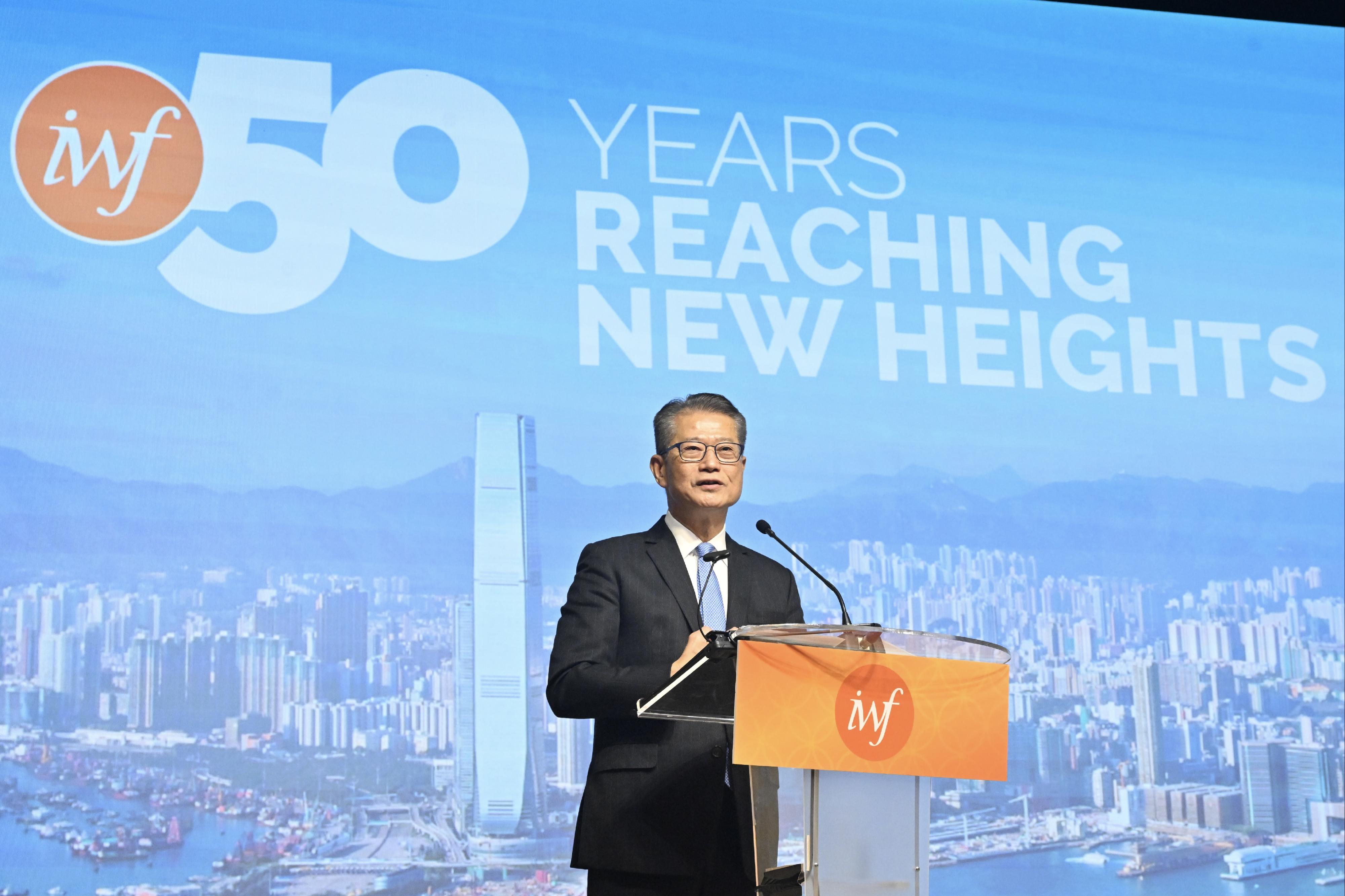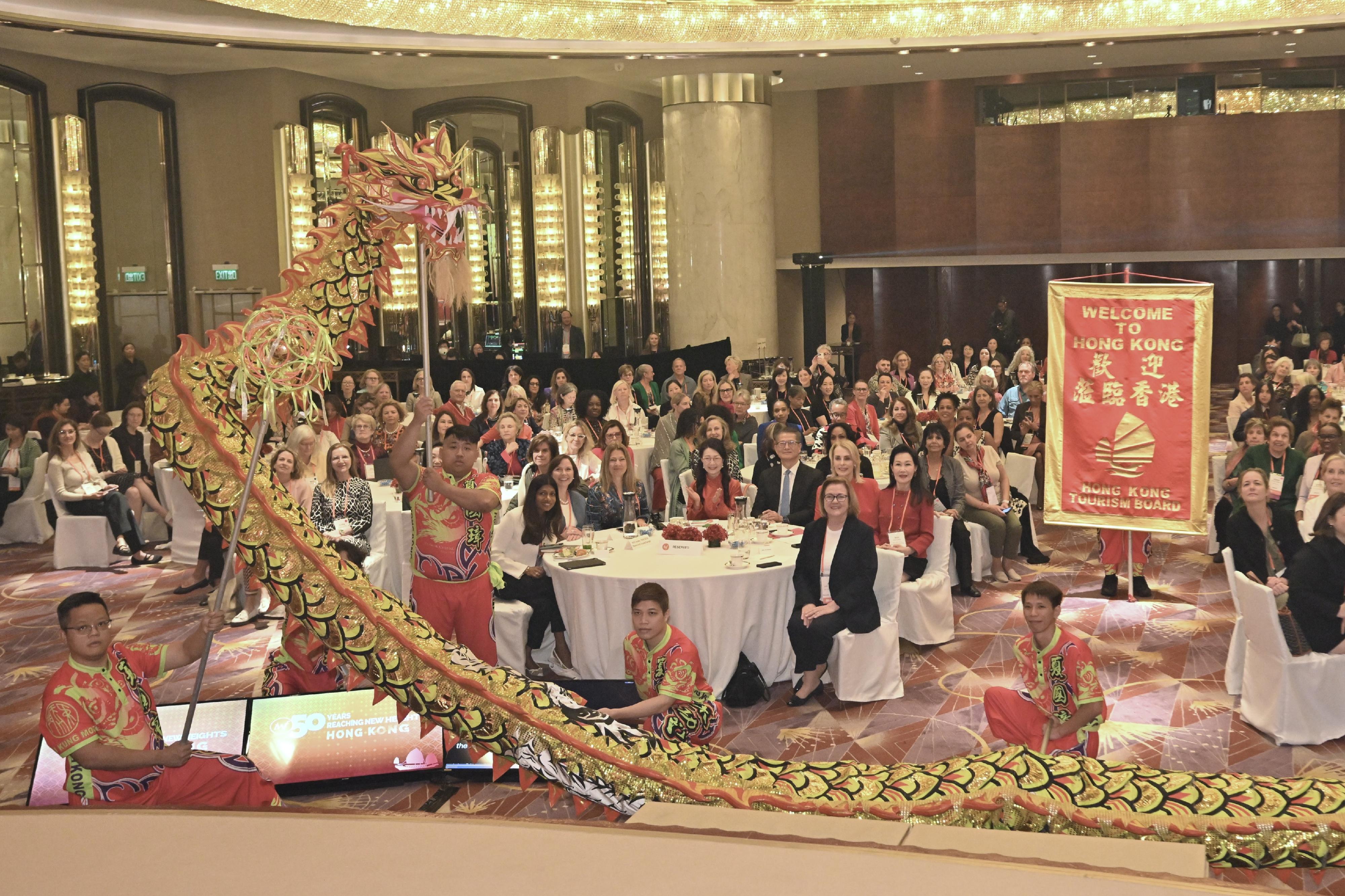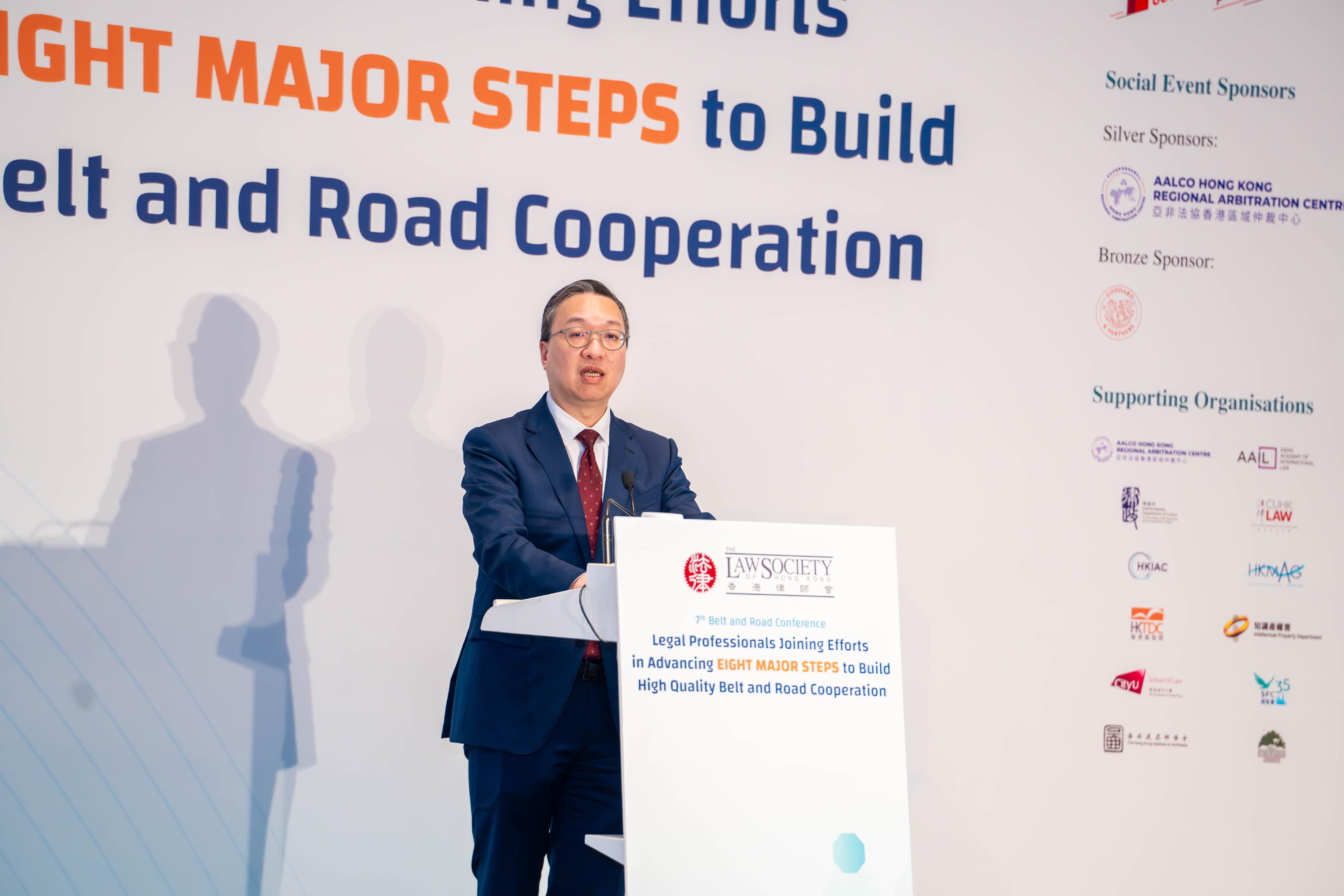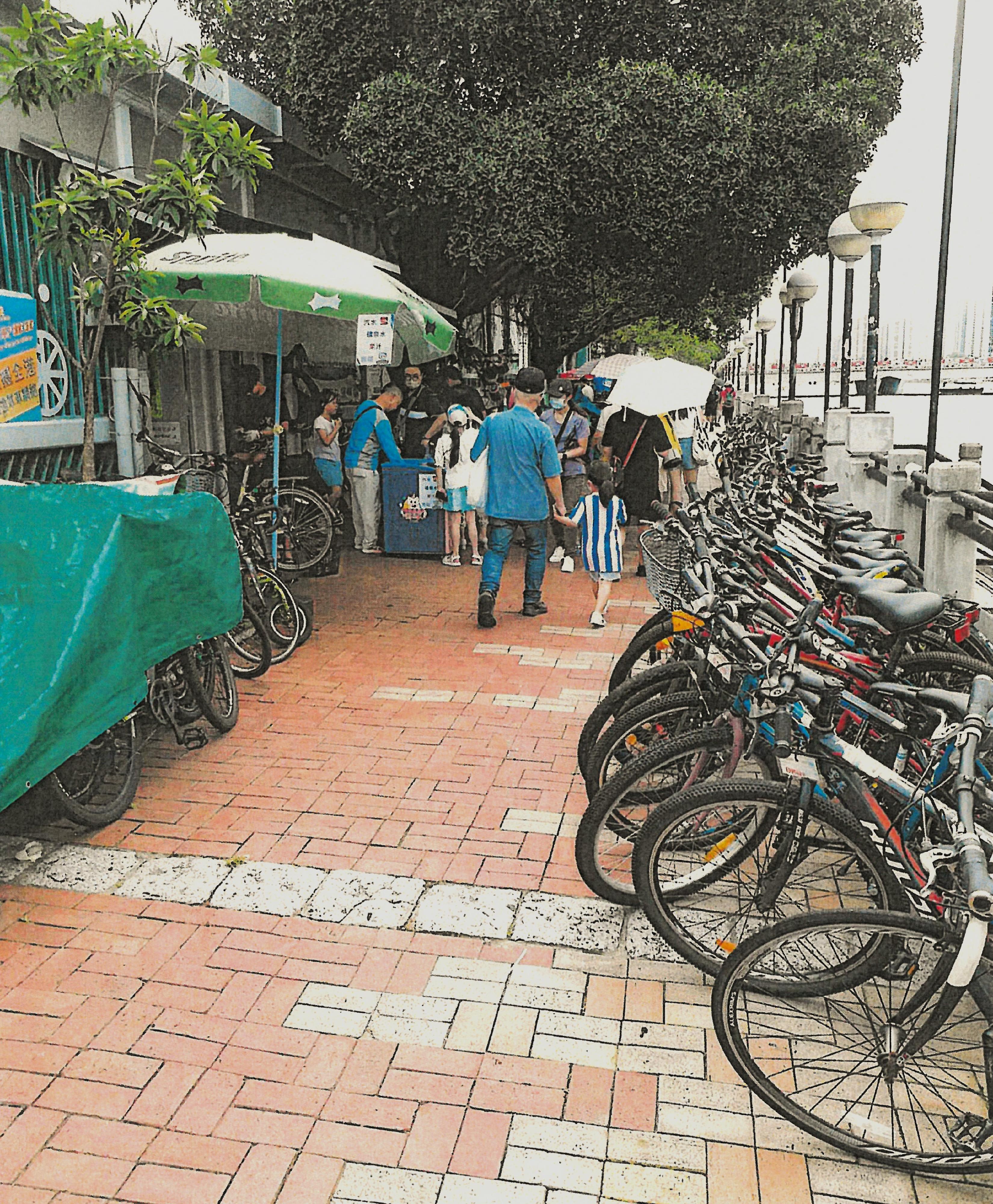Speech by FS at IWF 50th Anniversary Cornerstone Conference (English only) (with photos/video)
Following is the speech by the Financial Secretary, Mr Paul Chan, at the IWF 50th Anniversary Cornerstone Conference today (November 21):
Carolyn (Global President of the International Women's Forum (IWF), Ms Carolyn Carter), Vivian (President of the IWF Hong Kong and Co-Chair of the 2024 Cornerstone Conference, Ms Vivian Lau), distinguished ladies,
Good morning. It is a great pleasure to join you today at the 50th Anniversary Cornerstone Conference of the International Women's Forum, the IWF.
Today's venue feels all too familiar. Just two days ago, we hosted the Global Financial Leaders Investment Summit right here, with approximately 300 participants, including around 100 group chairpersons and CEOs (Chief Executive Officers) from leading international financial institutions.
As we gather to celebrate the remarkable milestone of 50 years of the IWF, I am truly impressed by the journey you have undertaken together. When the IWF was established in 1974, women leaders were breaking through glass ceilings across different professional sectors, where their voices could be heard and their leadership recognised.
At that time, there arose a clear need for a network, dedicated to uplifting women leaders, empowering them to succeed, and inspiring countless others to embark on their own journeys of leadership. The IWF was born from this vision where women could connect and forge paths together.
Your value, "Leadership has no gender", resonates deeply and is profoundly relevant, and it is a principle we should all strive to embrace and promote.
Over the years, this city has witnessed remarkable strides in women's leadership. The influence of women in both the economy and society is flourishing. For instance, in 2023, women comprised 52 per cent of solicitors and 51 per cent of certified public accountants. Also encouraging is the notable increase of women in managerial positions, which has increased from about 20 per cent to 38 per cent over the past two decades.
The presence of many high-profile speakers at this forum underscores the growing importance of women as leaders, innovators, and change makers.
During this two-day forum, you will address a wide range of critical issues of regional and global significance, from the future of financial markets to shifting supply chains, tackling demographic challenges and developing medical systems.
Now, allow me to contribute to the discussion by sharing with you all Hong Kong's advantages, vision, and progress in some of these areas.
Fundamentally, Hong Kong's strengths are underscored by our unique position within China. Under the "one country, two systems" principle, we enjoy convenient, and at times priority, access to the Mainland market. But what truly sets Hong Kong apart is our steadfast commitment to maintaining our defining character, which includes a common law system, a judiciary exercising powers independently, the free flow of capital, information, goods, and people, and regulations and business practices that align with the best international standards.
The principle of "one country, two systems" is here to stay. This is a solemn commitment from the Central People's Government, reiterated by President Xi Jinping on multiple occasions.
With this strong foundation, Hong Kong is resolutely focused on excelling in eight areas that align with our national development strategies. These areas are finance, shipping, trade, aviation, innovation and technology, legal and dispute resolution services, intellectual property trading, and cultural exchange.
Here, I would like to highlight two pivotal areas which we see as Hong Kong's main engines of growth, namely financial services and innovation and technology.
Financial services
Hong Kong is the prime international financial hub in Asia, consistently ranking as among the top three global financial centres, alongside New York and London. In the upcoming panel, I am sure Luanne (Chief Executive Officer of HSBC Hong Kong, Ms Luanne Lim ) and Vanessa (Co-Chief Operating Officer and Group Chief Financial Officer of the Hong Kong Exchanges and Clearing Limited, Ms Vanessa Lau) will provide valuable insights into our banking sector, stock market, and financial markets in general.
So I would like to highlight only three points here: first is that with shifting geopolitics and intense international competition, while continuing to enhance areas with traditional strength, there is a need to adopt a more vigorous and proactive development approach, exploring new growth areas.
We are opening up new horizons for our financial services. The recent Policy Address announced our vision to develop Hong Kong into an international gold trading centre. Leveraging our strategic geographic position, robust logistics networks and facilities, as well as top-notch professional services, we can build a comprehensive ecosystem for both physical and financial gold trading, and offer a wide range of related financial products such as funds, forwards, swaps and futures. The Government will set up a working group within this year to formulate specific action plans.
Separately, to enhance the storage and delivery of commodities, in particular non-ferrous metals, in Hong Kong, and to provide better services to Mainland enterprises engaged in international commodity trade, we will facilitate the relevant international commodity exchange to set up accredited warehouses in Hong Kong. We will also enhance associated financial services and assist in building a robust commodity trading ecosystem.
The second point is that the global effort to tackle climate change presents Hong Kong with unique opportunities, particularly on the green and sustainable finance front.
We stand as Asia's leading green financing hub. Over the past three years, we issued an average of over US$63 billion in green bonds and debts annually. The number of ESG (environmental, social and governance) funds authorised by the Securities and Futures Commission has also been on the rise. As of June this year, there were over 230 such funds, managing assets exceeding US$160 billion, representing a 60 per cent growth compared to three years ago.
On green standards setting, we participate in the global efforts in developing taxonomies to delineate permissible activities. In May this year, our Hong Kong Monetary Authority published the Hong Kong Taxonomy for Sustainable Finance, aiming to facilitate informed investment decisions on green and sustainable finance and thereby scaling up relevant investments. Our Taxonomy was devised to be compatible with the two mainstream taxonomies, the Mainland and the European Union.
In March this year, we issued a statement, which sets out our vision to be among the first jurisdictions to align local sustainability disclosure requirements with the standards set by the International Sustainability Standards Board, the ISSB. In this regard, our Hong Kong Stock Exchange also announced in April that it would implement amended listing rules with new climate requirements starting 2025.
The third point is how we should continue to expand market connectivity to bolster our status as the international financial centre.
On the one hand, we work to consolidate and further deepen the connectivity with the Mainland. The Connect Schemes, which allow mutual access for international investors to the Mainland market through Hong Kong, and vice versa, have continued to expand, from stocks, bonds, exchange-traded funds (ETFs), derivatives, to the recently announced real estate investment trusts. This ongoing interconnected development of the Hong Kong and Mainland markets has further enhanced Hong Kong's unique and attractive role in the international arena.
What we have been trying to do, however, is not just connecting to the Mainland, but connecting with the emerging markets, particularly the Global South. Shifting economic dynamics reveal immense business opportunities in the Global South. And we are proactively expanding our financial connections with these emerging markets and encouraging two-way capital flows, including countries in the Gulf Region and ASEAN (Association of Southeast Asian Nations). For example, last year, an ETF investing in the Saudi market was listed in Hong Kong. And just a few weeks ago, two ETFs investing in Hong Kong were listed on the Saudi Exchange. And we have formed a strategic co-operation consensus with them to bring their business to this part of the world, to capture the opportunities provided by the Greater Bay Area, the Mainland and ASEAN market. At the same time, we will bring delegations and encourage businesses here to go to Saudi Arabia to set up their manufacturing and other facilities, in order to support Saudi Arabia's realisation of their Vision 2030, which includes diversification of their economic structures, promoting innovation and technology (I&T), and nuturing startups.
Innovation and technology
In fact, I&T, innovation and technology, is very central to Hong Kong's economy. We take a multipronged strategy in this regard – supporting basic research, encouraging commercialisation of outcomes, strengthening new industrialisation, providing funding and practical support to start-ups, and more.
We focus on four strategic areas: artificial intelligence and big data analytics, biotechnology, fintech, and new materials and new energy. To expedite their development, we established the Office for Attracting Strategic Enterprises at the end of 2022. With concerted efforts, we have successfully attracted over 100 innovative enterprises partners to Hong Kong. Altogether, they are expected to bring in more than US$6 billion in investments and create 17 000 quality jobs.
In tandem with our quest for strategic enterprises is our strengthened endeavour in attracting talent from all over the world. Our various talent admission schemes have been highly popular. Nearly 400 000 applications have been received so far. We have approved more than 250 000 of them, with more than 160 000 people having already arrived in the city.
To further accelerate our I&T development, we have also set up the HKIC – the Hong Kong Investment Corporation. As "patient capital", the HKIC has a dual mission: to pursue reasonable financial returns, while enhancing Hong Kong's competitiveness and economic vitality through strategic investment. By investing and co-investing in projects, it plays a key role of nurturing Hong Kong's strategic industries and the development of various components within the industry ecosystem. Moreover, it helps channel private capital into these sectors, fostering a vibrant landscape of growth and innovation.
In terms of hardware, we are developing the Northern Metropolis, which borders Shenzhen, as the hub for Hong Kong's innovation future. It includes a 87-hectare Hong Kong segment of a joint innovation and technology park with Shenzhen. This Park will be a prime spot of tech co-operation with Shenzhen, and host many of the world's strategic innovation and technology enterprises.
Just yesterday, we released the Development Outline for the Park, outlining the key directions in which we will develop Hong Kong into a testing ground for experimenting with institutional and policy innovation, where the flow of data and capital, and even biodata for specific research, drug development purposes and clinical trials, will be facilitated. The Park will be a very attractive hub for housing global pharmaceutical companies and biotech research institutes.
Greater Bay Area opportunities
And of course, a discussion on Hong Kong's future economic growth would not be complete without mentioning the Greater Bay Area (GBA).
Our unparalleled access to the Mainland capital markets, and strategic location within the GBA, which has an affluent population of 87 million and a GDP (Gross Domestic Product) of approximately US$2 trillion, about the size of Italy. The vision for this area is to develop it into a region powered by financial services as well as innovation and technology, and let this region rise to become one of the key global innovation and technology hubs, combining the strengths of the San Francisco Bay Area and the New York Bay Area.
Other than this, the Wealth Management Connect is also one special feature of the GBA, because people in this area are more affluent, and they see the need to allocate certain portions of their assets offshore. This is an opportunity for us to offer investment, asset and wealth management products. If you are in related businesses, this is another exciting area that is worth looking into.
Concluding remarks
Distinguished ladies, I would like to conclude by highlighting an area in Hong Kong with immense potential: our diverse and vibrant culture.
Hong Kong is more than just business. This city, a true tapestry of diverse traditions, blends East and West seamlessly, creating a rich cultural mosaic. The enchanting contrast between the Hong Kong Palace Museum and M+ contemporary art museum, both in the West Kowloon Cultural District, serves as a testament to this harmonious fusion.
And there's more. Every year, we host many world-class arts and cultural events like Art Basel. And the Business of Design Week, Asia's largest annual design event, opens early next month. And not to be missed are, of course, some 200 Michelin-recommended restaurants. Not all are in the five-star hotels, there are quite a significant number located in various districts offering local delicacies. Go and try.
Finally, take some time to explore our hiking trails. I know it is raining, but with your presence here, I hope the sun will shine soon. Thank you very much.



